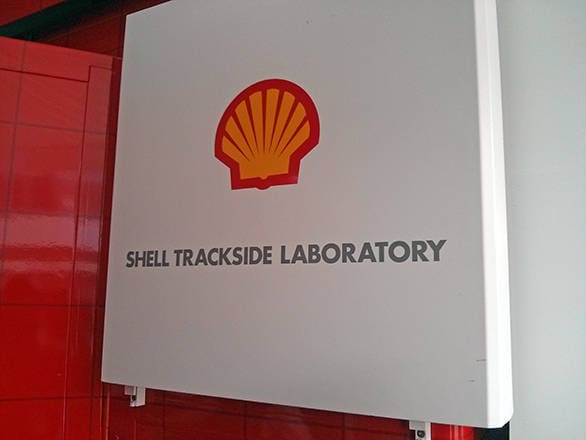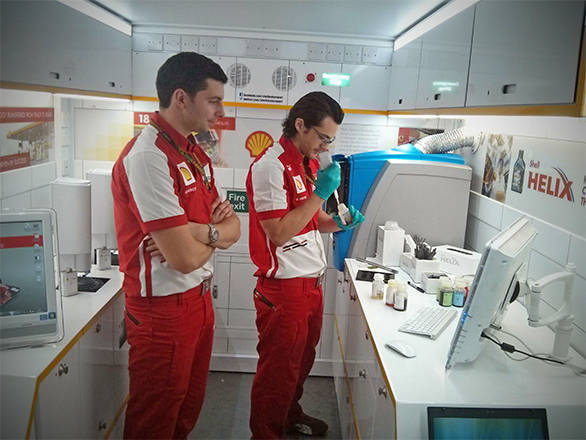2013 Indian GP: Inside the Shell trackside lab
When Ferrari travels around the world for a Formula 1 race, a small but technologically advanced lab travels with them too.The Shell trackside lab plays an important role in analysing race fuel and the various oils that the Formula 1 car uses. OVERDRIVE took a quick tour of the lab at the Ferrari pit before the start of the 2013 Indian Grand Prix.

The lab is always at the pit entrance and three scientists test race fuels, oils and monitor data using hi-tech equipment. The team basically ensures that the fuel stays legal and at no time is contaminated. Just leaving a cap open in a fuel barrel is enough to get the team disqualified. So before the fuel goes into the car, a digital test is carried out. Race fuel has various components and even temperature can affect it, especially during hot races. Time is always at a premium in Formula 1 and since Shell Motorsport is the official fuel partner, the scientists not only test but also provide Ferrari with figures and graphs.
Oils too are tested and since there are no actual regulations, Shell spends a lot of time and effort developing special racing oils. Every team is given only 8 engines a year and the oil helps retain the life of the motor and as a result perform better in every race. At the lab, the oils are put to test too. The equipment detects metal fragments in the oil sample and produces a report that exactly mentions the concentration of iron, titanium, copper and magnesium. And since Shell has been working with Ferrari for a long time, they are able to predict the concentration of metal using specially developed software. What's the advantage you may ask? Well this way, the team knows what exactly is happening inside the engine without taking it apart. As the Shell team says, it's like doing a blood test.

Next year, the next generation engines to be used in Formula 1 are going to be turbocharged and race fuels will also change accordingly. This makes it more challenging to develop competition winning fuels and oils. Just like road cars, Formula 1 engines are downsizing and this also means that the technology that is used in race cars will eventually pass on to cars on the road. Gone are those days when the race car engine was years ahead of a road car unit.
Ferrari's Formula one victories are not just about the driver's effort but the rest of the team, a part of it being the team from Shell Motorsport and that tiny but very important trackside lab.














